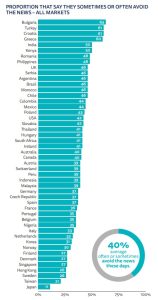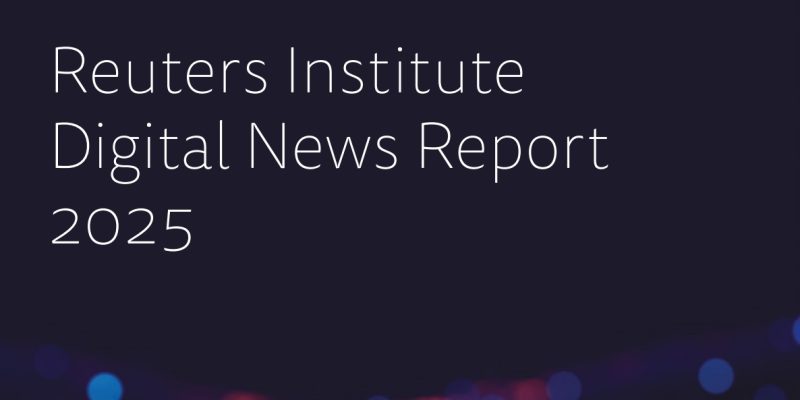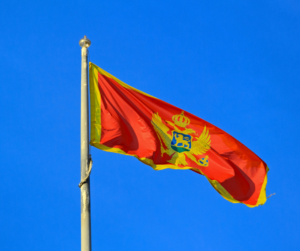Looking at the data from the 2025 Digital News Report, issued today, one thing is strikingly clear: Europe (and the world) is in the midst of a trust crisis. At this moment, we are witnessing populist governments amassing rapid support, misinformation becoming endlessly prolific, and the want for trusted news has never been greater. This fourteenth edition of the Report is based on data from six continents and 48 countries.
While the demand for trustworthy information is rising higher than ever, audiences continue to disengage from traditional and reputable news sources. While the 2025 Digital News Report finds global trust in news has remained stagnant at 40%, there are wide variations within Europe. Trust in the news stands at a healthy 67% in Finland, while in Greece and Hungary it is only 22%.
Countries such as Germany and the United Kingdom have also experienced significant declines (15 and 16 percentage points respectively) since 2015. Each of these declines occurred alongside rising political polarisation and increasingly heated debates of media neutrality, particularly around elections or other major crises, such as the COVID-19 pandemic.
More importantly, trust is not simply being forfeited to misinformation. How else? Through alienation.
News avoidance (see below) is not apathy, at least not as it is often framed. In many cases, avoidance can be a form of emotional self-defense on the part of the reader. In countries like Bulgaria (63% avoid news), Greece (60%) and Croatia and Turkey (61%), the news is often framed as a not a civic resource, but as a source of psychological distress.
As in the 2025 report, we see two types of avoiders. One type are those who never consume news, the other type are avoiders who selectively turn off news due to information overload and emotional fatigue. For many, scrolling through the news is like reopening a wound: another corruption scandal, another war, another headline that results in no solutions.
In sharp contrast with other European regions, avoiders in Nordic regions reported some of the lowest rates of news avoidance (21%). What is the difference? A public that feels respected, informed, and understood by its media.
If European journalism wants to address disengagement, the media must first consider avoidance not as a user failure, but as a sign of industry failure. Disengagement does not mean that people do not care about news. In fact, people are telling us exactly what they need, to continue engaging.
Survey respondents across Europe are definitely not confused about what they want from the media. They want impartiality, reporting that prioritizes evidence over agenda. They want accuracy in their news media’s commitment to fact checking, and who rejects hearsay. They want transparency such as open sourcing, funding disclosure and correction policies. And they want depth: fewer headlines chasing algorithms; more beat reporting by subject matter experts.
These aren’t outrageous requests. In fact, they are what many journalists believe in already. But in practice, those values are tainted by resource limits, burnout, and click driven priorities.
The data also reveals that reader bases are beginning to shift toward influencers, podcasts and social feeds. Younger Europeans aren’t abandoning news, just consuming it differently. TikTok, YouTube and Instagram are becoming primary vectors for news (even if weekly use for news is below 10% in various European countries). Influencers dominate these platforms, are often less concerned about verification than they’re about relatability, and often don’t have the same kinds of editorial safeguards that journalists have in place.
Generative AI is also changing how information is served to audiences. Data from the 2025 report revealed that 21% of users are interested in AI-assisted news recommendations; 27% are interested in AI-generated news yield; while 18% of respondents already used news chatbots. But importantly, those same users also reported a preference for legacy media brands in terms of trust.
So the current challenge for journalists is not how to become influencers or replace themselves with machines, but to meet audiences where they are with their integrity intact.
Trust is not built by mistake. It takes the right infrastructure, empathy and consistency. That means investment in local newsrooms, hiring a diverse array of reporters, and not giving in to sensationalism to name a few examples. It means taking the time to pay attention to reports, surveys, and everyday requests to listen to why audiences disengage, and also responding by adopting the right formats that respect their time and intelligence.
Rebuilding trust is slow, often thankless work. It requires journalists to regard their audiences too. Not as metrics, but as partners. The public isn’t asking for perfection. They are asking for honesty, for effort, for journalism that stands for more than reach.
“The report highlights the importance of journalists in an increasingly hostile environment. Some of its findings are particularly worrying, not only for the profession, but above all for the fate of our democracies,” said EFJ President Maja Sever. “The public authorities and publishers must allow journalists to carry out their work as they know how, with respect for the public and in accordance with professional ethics”.

Read the full 2025 Digital News Report from the Reuters Institute for the Study of Journalism: https://reutersinstitute.politics.ox.ac.uk/digital-news-report/2025
Source: EFJ




